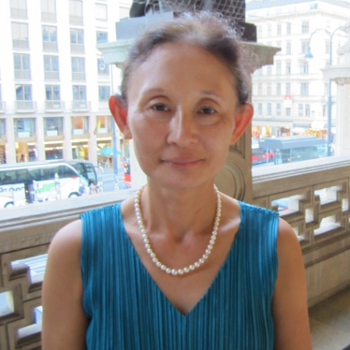Don Pasquale is one of Donizetti’s last operas, premiering in 1843, 5 years before his early death at 51. The composer’s experience of having written many operas (he has more than 60 operas to his name) clearly shows in the sophisticated orchestration and economical writing of this comic opera. The line between recitative and aria is less clearly drawn by the use of strings rather than harpsichord for the former, thereby allowing the music to flow more seamlessly. While there are several arias scattered like precious gems throughout, they are less isolated showstoppers than well-integrated highlights of the whole narrative. One hears some familiar Donizetti melodies, for example some echoes of Lucia di Lammermoor as trumpet (rather than flute) accompanies the tenor aria that begins Act 2.
The opera requires four strong singers: a bass or baritone in the title role, a tenor (Ernesto, his nephew), a soprano (Ernesto’s love interest), a baritone (Dr. Malatesta). The Met assembled a good ensemble to revive Otto Schenk’s 2006 production that places the action in the early 19th century, the time of the opera’s creation. A painted curtain depicting the street scene lined with houses of Rome in pastel hues set a lighthearted tone as the prelude was performed. Don Pasquale’s house was a dilapidated former mansion, with broken furniture and fading curtains. Norina’s terrace in Scene 2 of Act 1 was set on a roof top, with indoor space for her kitchen to stage right as most action took place around a small settee in center. Don Pasquale’s garden of the final scene was tastefully decorated with trees and minimal furnishings.
The only objection to this unfussy and straightforward production is the amount of time required for scene changes, which interrupted the drama and prompted some audience members to talk or check their phones. Despite these unfortunate interruptions, the evening was a major success thanks to the delightful ensemble of the cast and solid orchestra performance led by Maestro Benini.
Making his role debut as Don Pasquale, the baritone Ambrogio Maestri portrayed the old bachelor less as a grumpy curmudgeon as a bewildered loner at the mercy of plotting youngsters. Slight coordination issue with the orchestra at the beginning quickly overcome, Mr. Maestri was a delightful Don vocally, his powerful but warm voice penetrating the relatively thick orchestration. His strong vocal presence anchored the many duets and ensemble scenes. He was also a superb actor and carried off the comical moments without unnecessary exaggeration.
Young Italian soprano Eleonora Buratto, in her Met debut, had the unenviable task of singing Norina’s demanding aria as her introduction to the Met audience. Her voice is perhaps a little heavy for a light coloratura role, and her high notes were initially a little thin and strident, although she executed the coloratura passages well enough. As she warmed up, her warm middle voice added an unexpected but welcome weight to the flighty character, and her contrition at deceiving the old man in Act 3 seemed genuine. Her high notes became more plush; a variety of color in her voice was a delight and made one hopeful for her further development as a singer.
Romanian Levente Molnár as Dr. Malatesta has a pleasant high baritone that was a good complement to Mr. Maestri’s deeper voice. The two brought off a delightful show stopper, the duet at the end of Act 3 Scene 1, typical Italian patter singing consisting of rapidly fired words and notes, which was repeated in front of the painted curtain.
Vocally the evening clearly belonged to the Mexican tenor Javier Camarena, hailed as the “new king of high notes.” High notes were only a small part of his impressive performance. He had an astoundingly clear, bright and penetrating voice that never got loud and grating. Carefully husbanding his resources, he was able to shade his voice exquisitely, from quiet and soft pianissimo to big clowning notes. His legato seemed to go on forever, shaping the musical lines gently. His aria in Act 2 was an early highlight, as he topped his winsome farewell with an impressive high note, prompting some of the audience to demand an encore (which did not happen).
Mr. Camarena was also a great ensemble member. His duets, with Mr. Maestri early in the opera as well as his love duet with Ms. Buratto, brought out the beauty of his voice in a torrent of delightful melodies but he was always working with his partner, and was never dominating. The Met chorus, making the most of their brief scenes as Don’s servants, sang and acted with controlled abandon. The delightful evening concluded with a splendid quartet, some of the most playful and yet beautiful melodies composed by Donizetti.




